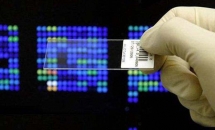Idiopathic pulmonary fibrosis is the most frequent and lethal interstitial pulmonary pathology in our country, with an average survival rate of 2-4 years from diagnosis. Since the dawn of the 21st century, we have witnessed advances not only in terms of the diagnosis of the illness, but also in the field of physio-pathological knowledge on the causes of the fibrotic process and, as a result, in the fundamentals of "the pulmonary anti-fibrotic era". Therefore, we have moved from an infradiagnosed pathology treated on an "anti-inflammatory" basis (we now know that, far from being effective, this actually provokes greater associated mortality) to multidisciplinary teamwork to identify patients in the initial stages of the disease, and thus to apply new therapeutic strategies that inhibit the process once it has commenced.
This year, the Spanish Medicines Agency has approved the first anti-fibrotic drug for the market owing to the benefits demonstrated in these patients, while there are a range of other anti-fibrotic drugs currently in the clinical testing stage that could be added to this application. Likewise, great efforts continue to be made in experimental research to achieve a therapy that improve survival, but facilitates the individualisation of the optimum treatment for each patient and, at some future time, that will enable progress to be made towards the regenerating of damage tissue.
Cycle: Challenges of the 21St Century the Voice of Medicine, II
Organized by: Residence for Researchers, Fundació Clínic Barcelona, IDIBAPS and RESA
